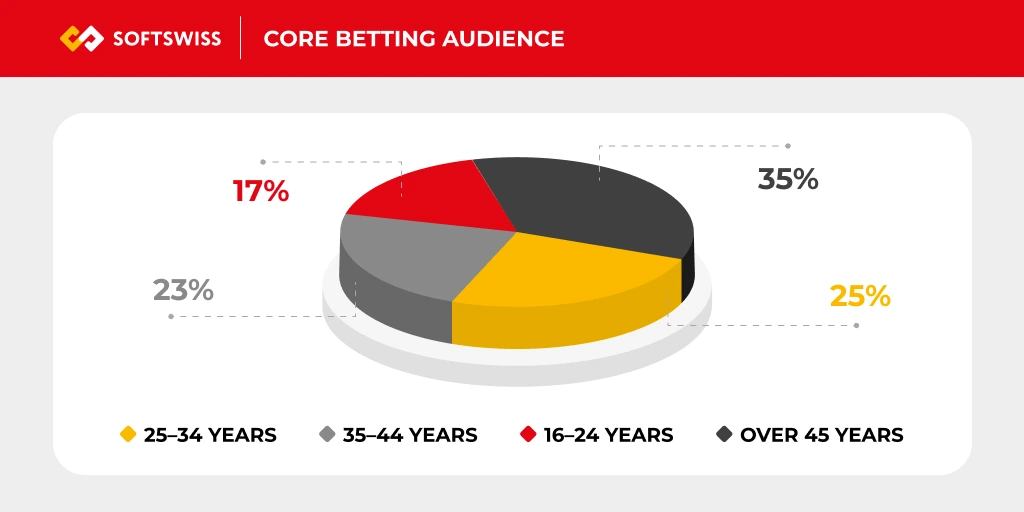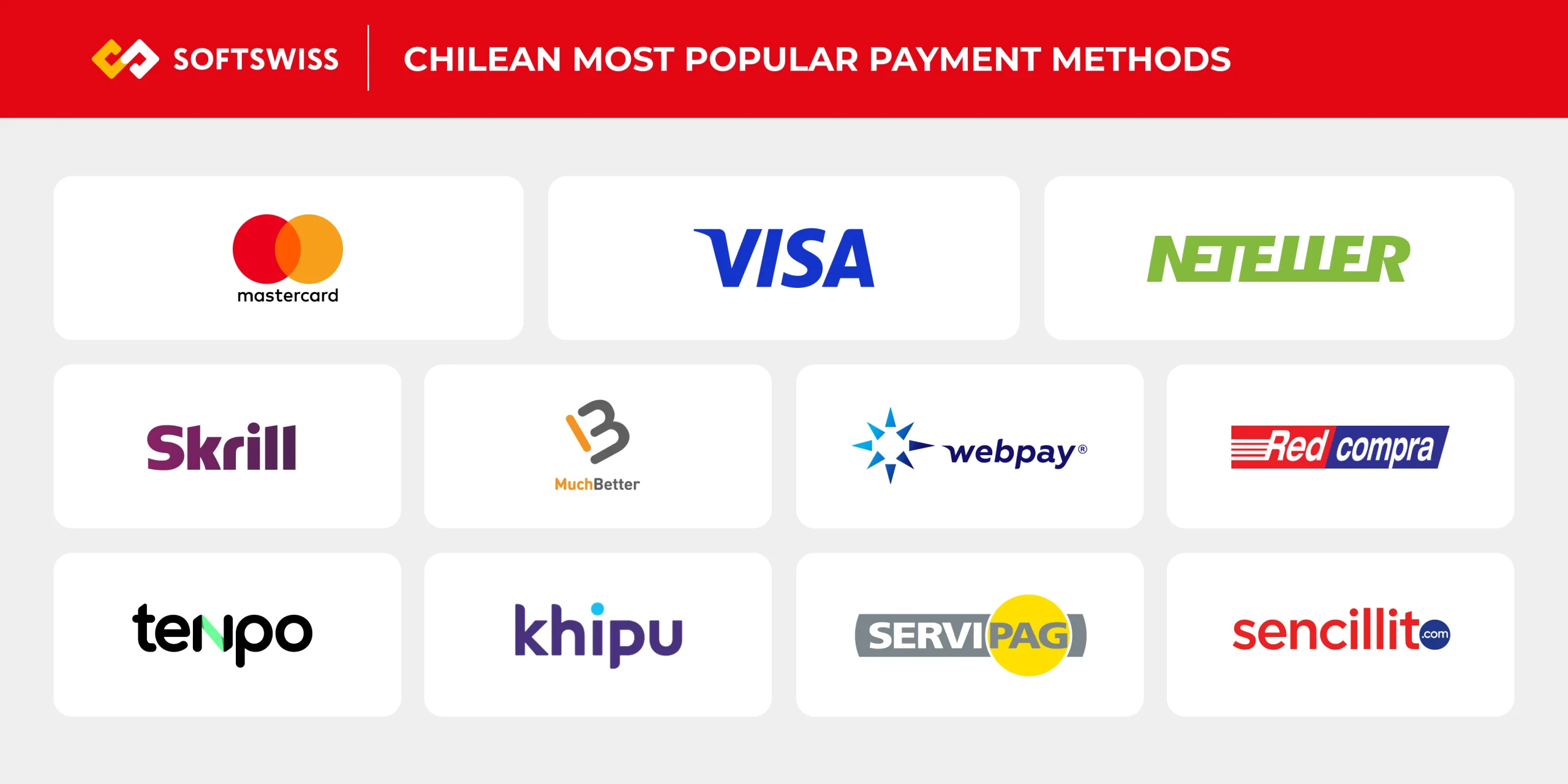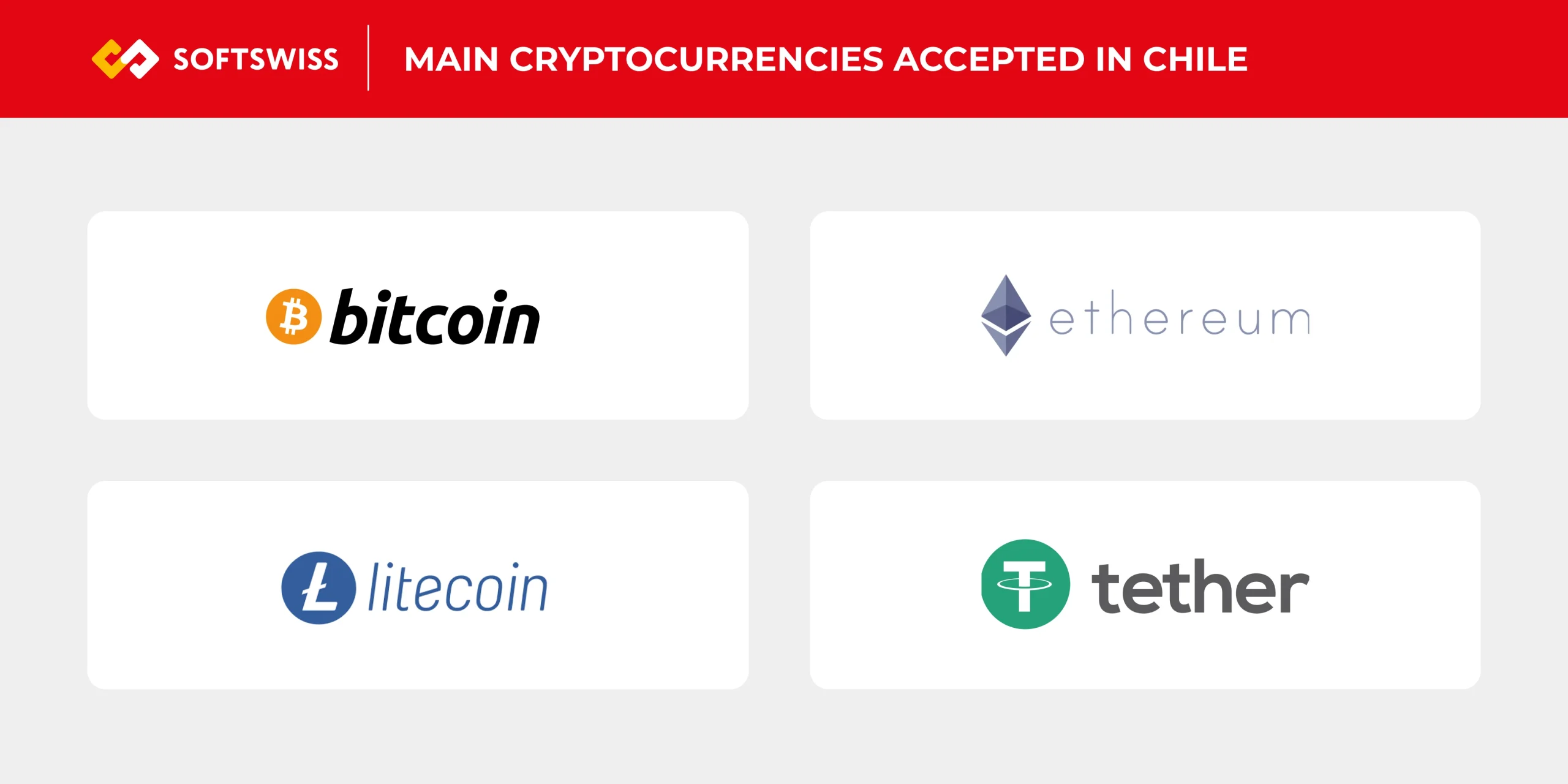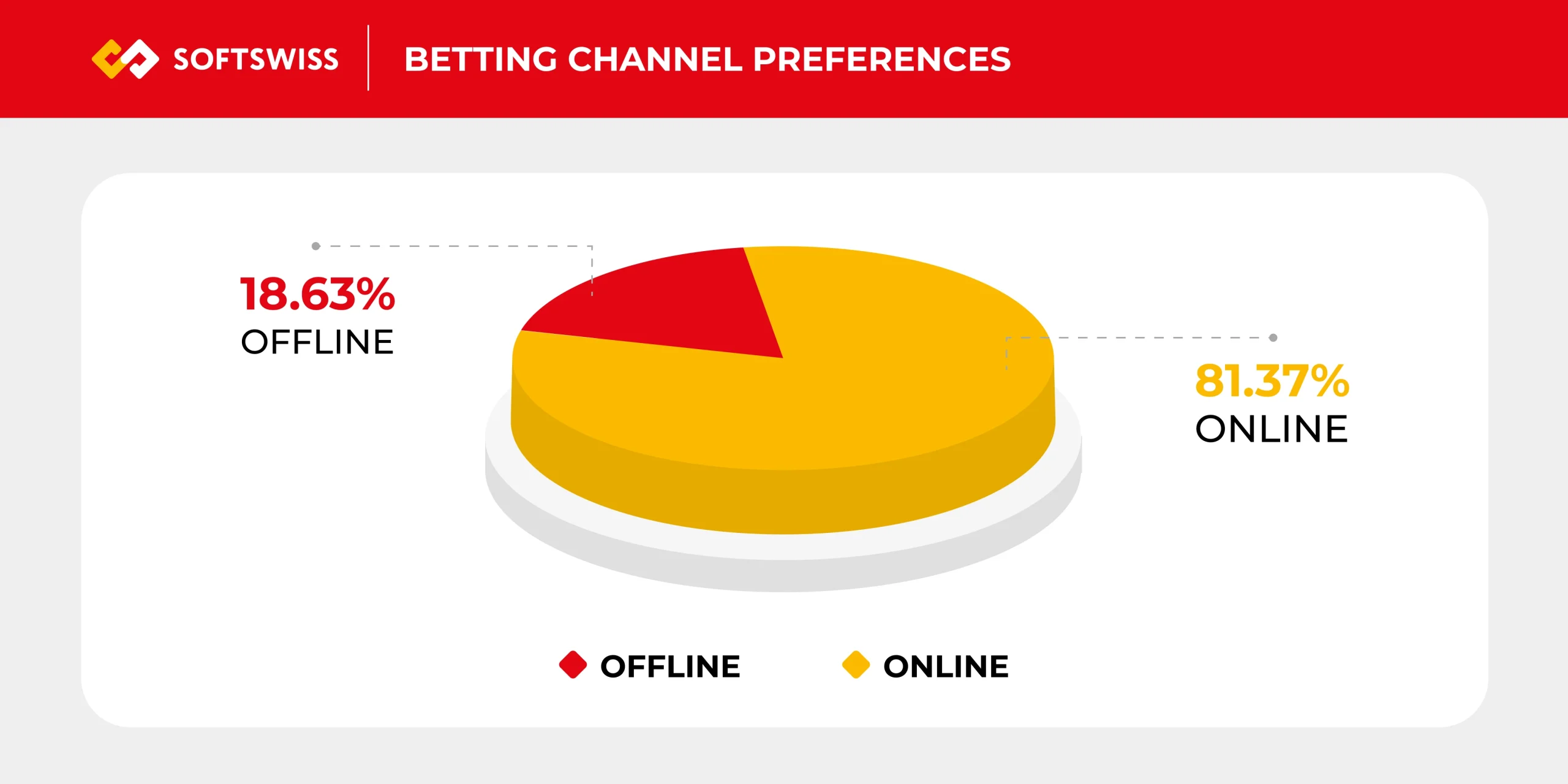Disclaimer: online casino betting is currently not regulated in Chile, there are no licences issued by the Chilean government as of 2025.
To start an online casino in Chile, iGaming business owners first need to understand the local market and gambling culture. In this article, we’ve compiled the steps that iGaming operators must take when opening a successful online casino in Chile.
Key Insights
- Licensing: International gaming licences are the go-to option for operators looking to enter the Chilean market.
- Payment Methods: Chilean players expect familiar payment methods, from credit cards via WebPay to local bank transfers, eWallets like Tenpo, and convenient cash options like Servipag.
- Cryptocurrency On the Rise: Thanks to new legal recognition, crypto has become a mainstream payment and investment option, making it a smart addition to any online casino.
- Marketing with Caution: Marketing is still fairly open, but tighter rules are expected soon. Affiliate marketing remains a safe, proven way to drive traffic to iGaming platforms.
- Technology & Compliance First: Investing in technology that is already aligned with industry standards and easy to adapt is a must. A platform that is built for compliance today will give you a strong foundation for success later on.
iGaming Market in Chile
Few countries in Latin America have a gambling tradition as well-established as Chile’s: the country’s first laws on betting date back to 1852. Chile stands out for two other reasons: a strong cultural appetite for gambling and a stable, growing economy. These combined strengths make the market especially appealing for online gaming operators.
All land-based casinos in the country are regulated by the Superintendence of Casino Games, or SCJ, the authority responsible for promoting fair play and responsible gaming practices.
Today, it’s estimated that more than 900 offer their services to Chilean players, generating around EUR 170 million annually.
The continued growth and evolution of casino gaming are supported by the country's robust economic development and a strong digital infrastructure. With a population of 19.6 million, of which 88% live in urban areas, and a GDP per capita around EUR 14,000, Chile's market conditions are exceptionally favourable.
Internet access is also widespread. Most of Chile’s residents live in cities, and over 94.5% are connected online. This makes it safe to affirm that Chileans are comfortable with technology and digital payments, making them an inviting audience for iGaming.
Local gambling culture is strong in both sports betting and casino games, with recent statistics showing that over 80% of bettors prefer to gamble online. Chileans are passionate about sports, which drives a huge sports betting following. Soccer is the dominant betting sport by far, with tennis and Formula 1 racing also popular among bettors.
Chileans also enjoy classic casino games like slots, roulette, blackjack, poker, and bingo. Online casino operators eyeing Chile should cover all these bases by having a sportsbook and offering a wide range of casino games, from slots to live dealer tables and all the classics in between.
Chile’s combination of tech-savvy users and a strong betting culture positions it as one of the most promising online casino markets in Latin America.

Is Online Gambling Legal in Chile?
Short answer: not yet, but regulation is taking shape.
Online gambling is not currently regulated under Chilean law. To address this regulatory gap Bill No. 14.838-0 proposes a comprehensive legal framework to regulate online betting and casino-style platforms, signalling a clear shift towards a controlled and transparent market.
Under the proposed framework, Chile would introduce a semi-open regulated market, subject to authorisation by a reinforced regulator, renamed the Superintendence of Casinos, Betting, and Games of Chance (SCJ). Online gambling operators would be required to meet formal corporate and operational standards comparable to those applied to land-based casinos:
Key Elements of the Proposed Regulatory Framework Include:
- The tax will be 20% of gross revenue (GGR).
- Licensing and operational requirements: Operators must be closed joint-stock companies incorporated in Chile, meet capital and ownership disclosure requirements, obtain final SCJ certification before launch, maintain liquidity reserves, and offer only products expressly authorised by the SCJ.
- Responsible gambling policy: A National Responsible Gambling Policy will apply to the entire gambling industry, both online and land-based, and all advertising must comply with its guidelines.
Most Popular Payment Methods in Chile
For an online casino or gambling house to succeed in any market, it’s essential to offer the most popular and secure payment methods used in that country. While these methods may evolve and new ones appear, providing the most popular payment options is always advisable.
In order to satisfy the preferences of Chilean players, the methods that should be offered on the casino or gambling site include:

Local players will always prefer payment methods they trust. That means cards through WebPay, bank transfers with local banks, and mobile apps like Mach or Tenpo. Cash-based methods like Servipag and Sencillito still attract users. With crypto use on the rise, supporting Bitcoin and stablecoins will be increasingly expected.
Read on to know more.
Is Crypto Legal in Chilean Online Casinos?
The approval of the Fintech Law in 2023 has significantly bolstered the position of cryptocurrencies in the Chilean economy, recognising them as valid digital financial assets. This regulation has facilitated their use and has contributed to crypto becoming the third-favourite investment choice among Chileans in 2024.
Before 2023, cryptocurrencies were already gaining popularity in online casinos and betting sites. With the backing of the Chilean Central Bank, their popularity among players continued to grow.
Any bookmaker or online casino aiming to establish a presence in the Chilean market should consider integrating cryptocurrency payment and withdrawal options. As an operator, you have two primary choices: adopt a dedicated cryptocurrency payment processing software suitable for new market entrants, or opt for a full-featured crypto casino solution, which comes equipped with all the essential features needed to handle cryptocurrencies efficiently.

Starting an Online Casino in Chile: a Step-by-Step Guide
Chile has been catching increasingly more attention from iGaming operators for its market and gambling culture. Yet, targeting iGaming audiences in Chile has its challenges and hurdles. These can be overcome, and the following roadmap will help any operator chart their course to start an online casino in Chile
Licences to Start an Online Casino in Chile
A proper licence gives online casinos credibility, keeps them compliant, and shows players they are in safe hands.
Many operators launch with international licences. Curaçao and Kahnawake are go-to options in Chile, offering straightforward, budget-friendly paths for new casinos. For those aiming beyond Chile, licences from the destination countries, Malta or the Isle of Man offer stricter compliance and wider recognition, but come with higher costs and longer timelines.
Local players know what to look for, and compliance signals credibility to those who are savvy and look for signs that a site is trustworthy. Once the new law is in place, a local licence will be required.
It is too early to know the final rules, but staying informed will give online casino owners a head start so that when the time comes, all is ready to make the transition to a Chilean licence.
Software Platform Needed to Start an Online Casino in Chile
Launching an online casino is as much a technological endeavour as it is a legal one. The platform and software you choose will underpin your entire operation – game offerings, payment processing, user experience, and compliance. In this section, we will discuss how to approach the technology side, including certification and working with B2B providers, to ensure a smooth entry into the Chilean market.
Flexibility and Compliance: Winning Combination
Building an iGaming platform from scratch can turn out to be extremely complex, time-consuming, and costly. A more efficient choice is to partner with a white-label or turnkey platform provider. Companies like SOFTSWISS offer ready-made online casino platforms that can be branded and customised. The advantage is that these platforms are already tested, optimised, and compliant with industry standards.
Key features iGaming business owners should look for include:
- Full proof certification and licences
- Compliance and security
- Support for multiple currencies (including crypto)
- A mobile-optimised frontend (given Chile’s heavy mobile usage and betting habits)
- Easy integration with game providers
- A flexible bonus system
Certification matters: the iGaming platform and games should come with internationally recognised certifications. At minimum, the casino games you offer must be based on a Random Number Generator (RNG) certified for fairness by an accredited testing lab like Gaming Laboratories International (GLI) or BMM Testlabs.
Many platform providers will have a GLI-19 certificate (for interactive gaming systems) or similar, and any prospective online casino owner should ask about this. Additionally, if the platform includes a sportsbook, the odds engine should have certifications or approvals (for instance, GLI-33 for wagering systems). Having these certificates not only instils trust in players but will likely be required by regulators when Chile issues licences.
Another thing regulators will typically ask for is documentation that the chosen software has been audited for fairness and security. Using a pre-certified platform saves operators from struggling to get their technology audited later. In short, business owners should choose a platform that already meets high technical standards, so they are confident in its performance and it passes regulatory muster.
Compliance tools: The chosen platform should support all necessary compliance features from day one, including a KYC (Know Your Customer) system to verify player identities and age, and AML (Anti-Money Laundering) measures like transaction monitoring and reporting tools. Even before Chile regulates online gambling, operating responsibly is important: the online casino should be able to set betting limits or self-exclusion for players, aligning with responsible gambling best practices.
When Chile’s regulation arrives, online casinos and sportsbooks may be required to connect to a national database or reporting system, following examples from countries such as Peru, so having a flexible platform that can integrate APIs is beneficial. Some local jurisdictions also mandate that player data and systems be physically in-country for oversight. While Chile’s exact rule is yet unknown, choosing a platform that can accommodate a future move towards regulation is a wise decision: discuss with providers how they handle data location and if they have infrastructure in Latin America.
Online casinos deal with sensitive data and money, so security is a top priority for any operation. Look for a platform that follows high security standards: SSL encryption, PCI DSS compliance for card payments, and possibly ISO/IEC 27001 certification for information security management (this is a bonus that some top-tier B2B providers have).
An often overlooked aspect is the compliance of B2B suppliers – meaning the companies that provide games, payments and software platforms. While Chile doesn’t yet license B2B providers, operators should conduct due diligence on all partners. So, it is advisable to partner with licensed or certified studios. Using reputable game content will be important if future regulators review casino games’ fairness. Payment providers should be registered and knowledgeable, as a payment processor with experience in iGaming and knowledge of Chilean banking will smooth operations.
Operators who decide to go with a casino platform provider must verify their reputation and confirm if they hold relevant licences. Those who choose unlicensed or inexperienced providers to save costs might face serious legal and operational issues.
Moreover, when Chile begins licensing, the regulator might scrutinise the business supply chains. If they find that brands rely on unapproved vendors, it could delay or derail the licensing process in Chile.
Pro Tip: Partner only with companies that meet high standards. Ask potential B2B partners for documentation: game certificates, RNG certificates, company licence info, and compliance tools. This paperwork will likely be needed in your future licence application dossier.
Game Content and Localisation: Player Loyalty Boosters
The games a casino offers will define its appeal. Partnering with a platform or aggregator that can supply a wide range of game providers is the best option here. A bare minimum is to feature all the popular categories: online slots, table games (roulette, blackjack, baccarat, poker variants), live dealer games, and maybe bingo or esports. In Chile, players have access to international sites, so expectations are high – operators should consider having big-name slot providers as well as strong live casino brands featured throughout their online casino websites.
Many top slot games have Spanish versions or themes that resonate in Latin America, and while Chileans enjoy global casino content, adding some localised flavour may help establish new brands in the market. Running a sportsbook alongside an online casino in Chile may prove to be a wise strategic decision, so long as it covers Chilean sports interests: Chilean Primera Division football, major international soccer leagues, and events like the Copa America are popular betting choices.
The casino equivalent could be promoting games during Chilean holidays or offering tournaments timed with local events. Even offering customer support in Chilean Spanish (with knowledge of local vocabulary nuances) is a part of localisation that promotes a better user experience.
Final Considerations When Choosing the Best Online Casino Platform for Chile
While a ready-made or turnkey online casino solution accelerates setup, integrating all components (platform, games, payments, compliance) and testing them takes time. Building some buffer into launch timelines for unexpected delays or for meeting any new regulatory requirements that might pop up if Chile’s laws change is always advisable.
Lastly, the technology stack must scale as the brand grows. With the right marketing tools, you might onboard thousands of players within months. The platform should handle high traffic, and the B2B partner should provide technical support and possibly 24/7 monitoring to prevent downtime. Scalability also pertains to adding new features – for instance, if you want to bolt on a sportsbook or live casino after starting with just slots, the platform should allow easy module integration.
A highly effective option available on the international market is to partner with a provider of casino software that is both certified and backed by a company with a proven track record. This type of platform is consistently updated to improve functionality and adaptability, making it easier to integrate advanced features such as bonuses and jackpots. SOFTSWISS will continue to monitor the regulatory situation in Chile and will be happy to offer its software to the regulated market once it's established.
How to Market an Online Casino in Chile?
Marketing strategies in Chile currently face few restrictions, similar to other Latin American countries. However, this situation is only temporary, as the proposed regulatory bill could introduce strict conditions that would immediately censor or cancel any ongoing marketing actions by online casinos or gambling houses, if passed.
To mitigate any possible risks and ensure compliance, there are marketing strategies that allow you to reach thousands of players effectively and safely. One of the most used options is affiliate marketing. By building an affiliate program, operators can tap into local traffic without broadcasting their own ads. For example, a Chile-focused casino review site or a YouTube channel could promote your brand via tracked links.
Partnerships, such as working with online streamers or influencers in the gaming space, can also become quite useful when it comes to promoting awareness among potential players in Chile. These and similar strategies have proven to be some of the most efficient in iGaming. Based on its success in other markets, it would surely work in Chile as well. Solutions like Affilka by SOFTSWISS make it easy to manage affiliate campaigns, set up commission plans, and handle payouts efficiently.
In addition to affiliates, SEO and content marketing are also still valuable options when it comes to online casino marketing in Chile.
This means creating a strong online presence: a Spanish-language website optimised for Chilean search queries, a blog or news section with locally relevant content (game guides, sports news, etc.), and perhaps social media engagement. While social media may not be a straightforward option (as paid gambling ads on platforms like Facebook/Instagram are typically restricted), organic content and community building in channels like Telegram have proven to be valuable
Wrapping Up
As the Chilean Senate deliberates on the online gambling bill, it’s a matter of “when”, not “if” the market will regulate. So, being proactive now is key. Operators who have built a loyal customer base and solid operations during this pre-regulation phase will be the frontrunners once local licences are available. They will be ready to swiftly legalise their status and capture an even greater share of the Chilean iGaming market. Those who wait on the sidelines might find it hard to catch up later on.
In the end, Chile exemplifies a market where knowledge, preparation, and strategy will pay off. It’s an exciting time to be watchful, as a new market opens up.
Buena suerte (good luck) with your venture, and may your casino thrive in the Chilean market for years to come!
- Is online gambling legal in Chile?
-
Online gambling is not yet regulated under a dedicated national framework. However, Chile is actively moving toward regulation, with legislation progressing through the Senate review process, signalling a clear intent to establish a controlled market.
- What licence do you need to operate an online casino in Chile?
-
At present, there is no local online gambling licence available for private operators. Most brands entering the market typically rely on international licensing strategies, while preparing to transition into Chile’s future local framework once it is implemented.
- What tax rate is proposed for Chile’s regulated online gambling market?
-
The proposed framework includes a 20% tax on gross gaming revenue (GGR) for licensed online gambling operators. This rate is a key planning benchmark for forecasting margins, marketing spend, and long-term market viability.



